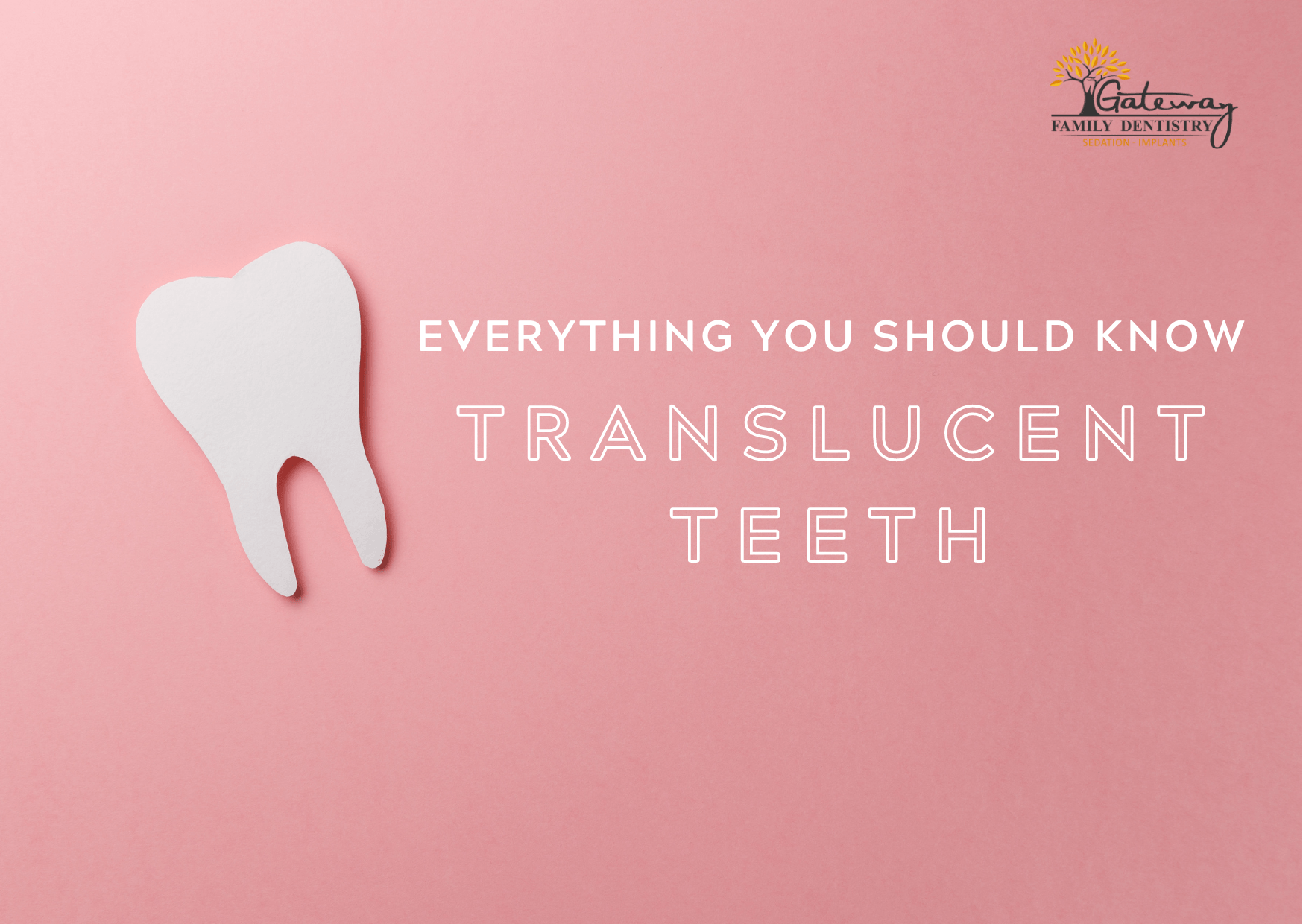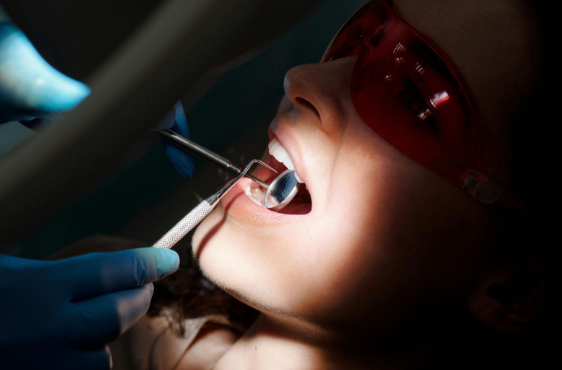Gateway Family Dental Blog
Translucent Teeth | Everything You Need to Know

You may wonder why you are seeing an odd color change at the ends of your teeth. It comes in the form of a clear, gray, or blue-looking area where your teeth meet. This change is known as translucent teeth, and it can be a result of one of several health complications.
The layer beneath the enamel of your teeth is called dentin, and it only reaches just short of the length that your enamel does. Your enamel itself is naturally semi-transparent, so anything that would increase its transparency is likely noticeable. When your enamel begins to erode, that's when you start to see the color changes in that area at the bottom.
What Causes Translucent Teeth?
One of the most common causes of this condition is celiac disease. This autoimmune disease is genetic and causes the ingestion of gluten to damage the small intestine. In addition to the other symptoms, celiac disease can result in your teeth becoming translucent. If you are experiencing translucent teeth, ask your doctor about celiac disease.
Another common cause of translucent teeth is enamel hypoplasia. This condition is genetic as well and affects the enamel directly. When you have this condition, your enamel can have a weak quality to it. Enamel can also become thin or chalky, resulting in the exposure of the dentin. Translucent teeth are common to those with mild to moderate cases of hypoplasia.
Bulimia is also another cause. The repeated exposure to bile and stomach acid will slowly erode the enamel of your teeth. Although the damage is slow, enamel does not grow back, and lasting effects will occur.
What Are the Symptoms?
The most noticeable symptom of those with translucent teeth is visual changes to the tooth. You may see the ends of your teeth become rigid or jagged. As the enamel erodes, you might also see changes in the coloring of your teeth. Minor fractures and indentations may occur as well.
A person with translucent teeth may also notice a dryer mouth as the enamel continues to wear away. Because saliva is responsible for protecting your mouth from acidic foods, further enamel erosion could occur from the lack of enzymes.
They may also experience tooth sensitivity caused by the disappearing enamel. Foods that are high in acid or extremely sweet may cause slight tooth pain. Your teeth may also feel sensitive to hot and cold temperatures. As the acid builds in your mouth and the edges of your teeth become more jagged, you could begin to form canker sores in your mouth as well.
How Do You Protect Your Enamel?
Excellent oral hygiene is always good for protecting your enamel. For example, flossing and brushing twice a day with a fluoride paste is instrumental in fighting enamel erosion. In addition to that, having regular dental checkups will do wonders for your smile.
Improving your diet could also help prevent erosion. For example, try to avoid spicy or acidic foods and beverages because they will aid in enamel loss. Avoiding those foods is especially important for those with GERD or acid reflux. If you do decide to skip the water and enjoy an acidic drink, use a straw to avoid direct contact with your teeth.
What Treatments Are Available?
A dentist may recommend one or several solutions for your transparent teeth. Different treatments are available, and the decision to commit to the one that is right for you should come after a consultation between you and your dentist. Common treatments for translucent teeth include:
● Crowns
● Veneers
● Enamel remineralization
● Bonding
If you are dealing with enamel issues or other dental problems, reach out to Gateway Family Dentistry to see how we can help you.




